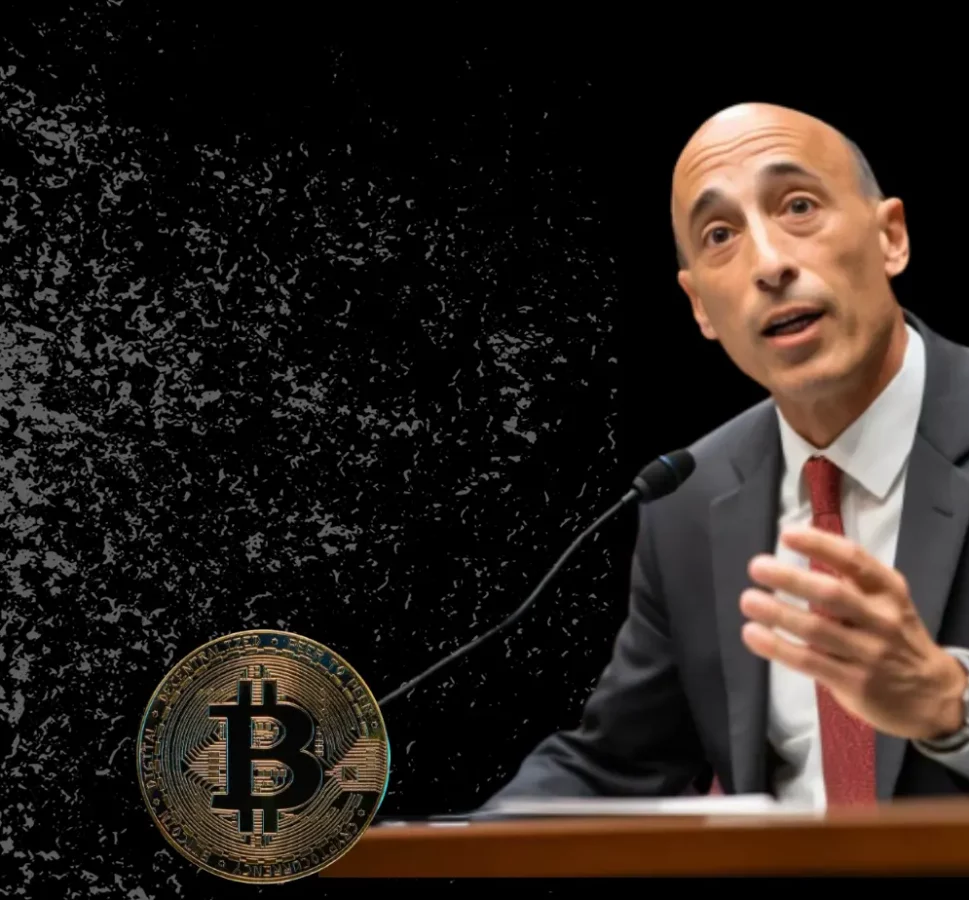- Gary Gensler, Chair of the SEC, maintains a confrontational stance toward crypto firms’ asset handling.
- The SEC is still deliberating on its stance on Bitcoin ETFs after a court ruling.
- Partisan divisions persist as Democrats praise Gensler while Republicans criticize the SEC’s impact on crypto.
During his congressional testimony on Wednesday, Gary Gensler, the Chair of the U.S. Securities and Exchange Commission (SEC), remained firm in his confrontational approach toward individuals involved in cryptocurrencies, refraining from addressing critical inquiries from the crypto sector. He contended that companies dealing with digital assets have exhibited a concerning lack of caution when it comes to safeguarding customer assets. Speaking before the House Financial Services Committee, Gensler reiterated his ongoing critique of how cryptocurrency firms handle their customers’ funds, highlighting that the practice of mingling assets has historically produced unfavorable outcomes.
The head of the securities regulatory body also mentioned that his agency has yet to make a decision regarding how to proceed following a judge’s ruling that required the SEC to reevaluate its stance on a spot Bitcoin exchange-traded fund (ETF).
It’s still an active consideration of the commission. We have great respect for the courts.
US SEC Chair Gary Gensler
In August, a judge in the D.C. Circuit Court of Appeals directed the SEC to reconsider its stance on applications for Bitcoin ETFs. Circuit Judge Neomi Rao specifically noted that the agency’s rejection of the Grayscale Investments case was deemed “arbitrary and capricious.” Gary Gensler’s testimony did not provide insights into the agency’s forthcoming actions or a timeline for such decisions.
While the hearing covered various topics beyond cryptocurrency, including the impending federal government shutdown and concerns about the SEC’s focus on matters like climate change, it once again showcased a notable partisan divide. Democrats of influence lauded Gensler, while Republicans accused him of adversely affecting consumers and small businesses.
Rep. Patrick McHenry (R-N.C.), the panel’s chairman, noted the SEC’s “losing streak with the courts” and criticized its “crusade against the digital assets ecosystem” that the congressman argued is causing confusion and “lasting damage” in the industry.
During his turn to question Gensler, he elicited the latest confirmation from Gensler that bitcoin is “not a security.”
Meanwhile, the crypto industry’s business before the agency may be slowed soon. Gensler indicated the SEC is bracing for a potential government shutdown next week, which the chairman said would sap the agency’s staffing by more than 90%.
The chairman of the panel, Rep. Patrick McHenry (R-N.C.), brought attention to the SEC’s recent string of unfavorable court outcomes and criticized what he characterized as the agency’s aggressive stance towards the digital assets ecosystem. He argued that this approach is leading to confusion and causing lasting harm to the industry. During his questioning of Gensler, he secured the latest confirmation from Gensler that bitcoin is not considered a security.
Meanwhile, there is a potential slowdown on the horizon for the cryptocurrency industry’s interactions with the agency. Gensler indicated that the SEC is preparing for a potential government shutdown in the upcoming week, which Chairman McHenry warned could result in a substantial reduction in agency staffing, potentially exceeding 90%.
He chose not to respond to a query from Rep. Stephen Lynch (D-Mass.) regarding the SEC’s notable legal dispute with Ripple. In that case, a judge had ruled that Ripple did not breach federal securities law when selling XRP to retail investors, emphasizing that it was an ongoing matter before the courts.
Lynch, who drew a parallel between the SEC’s accusations against Binance and the actions leading up to the collapse of FTX, argued that providing the cryptocurrency industry with regulatory shelter might paradoxically shield a company from legal responsibility in the event of another crisis.
In reply, Gensler highlighted that any legislative action would need to addresssed the issue of commingled assets within the cryptocurrency realm, stating that, “If Congress were to take any action, it would involve separating these conflicts.”






